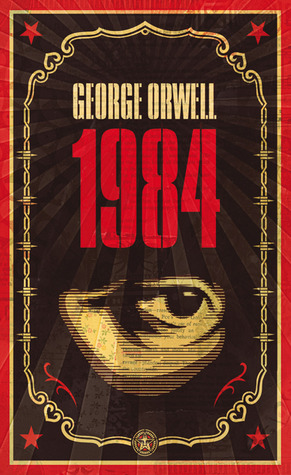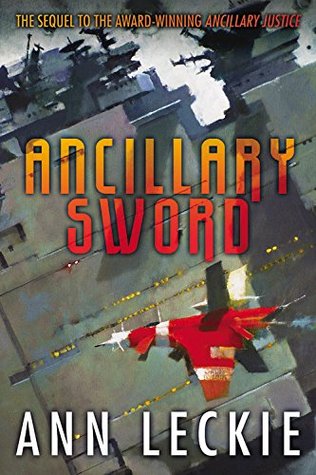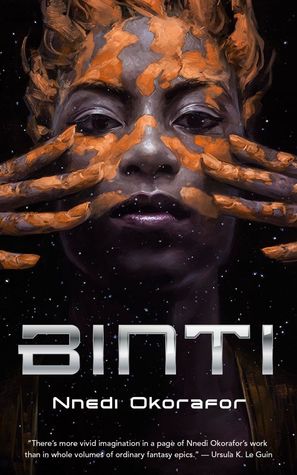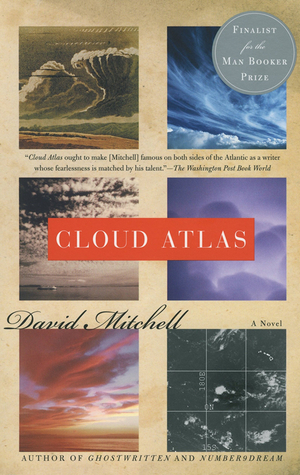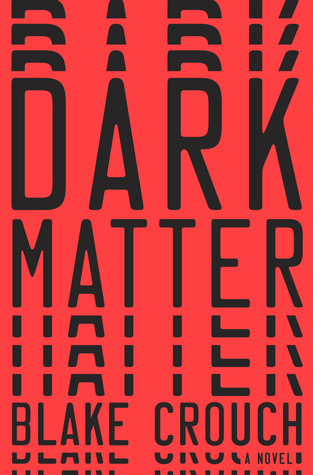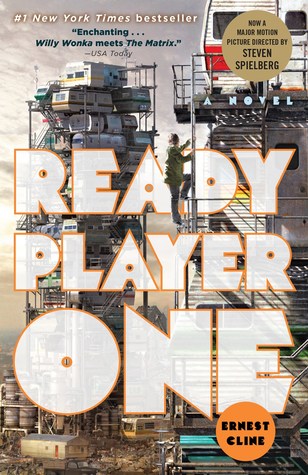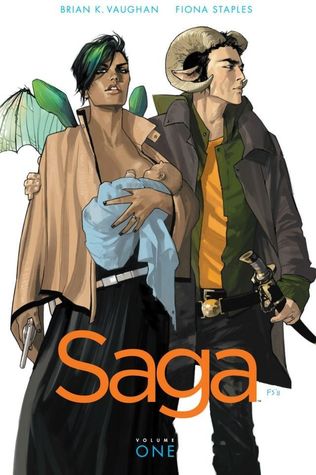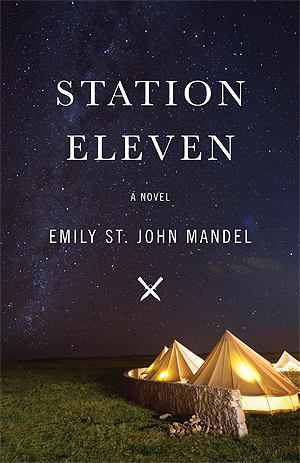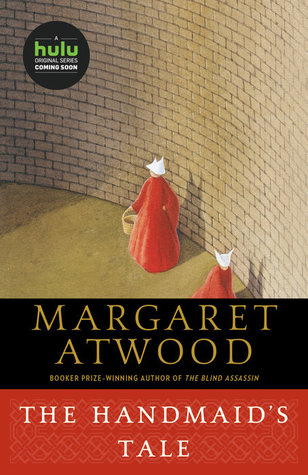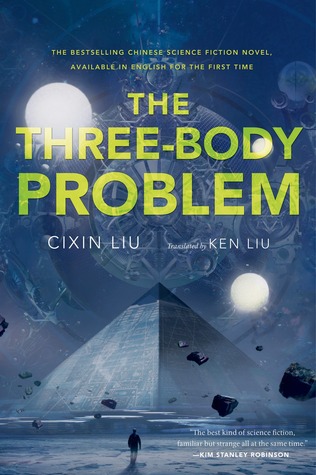Top 50 Science Fiction Books on Goodreads
-Ray Bradbury
Don't pack up your dinosaurs, fellow sci-fi readers. You're among friends here.
When we set out to uncover the top science fiction books on Goodreads, our journey—searching through hundreds of books and thousands of ratings and reviews—was a spacewalk down memory lane, from revisiting the sci-fi heroes we grew up with, like young brainiac Ender and hapless (and homeless) Arthur Dent, to returning to beloved worlds created by Ursula K. Le Guin, Isaac Asimov, Octavia Butler, and many more.
The bar needed to be high. Every book on our list has at least a four-star average rating from Goodreads members. Unfortunately, this means that dinosaur king himself Michael Crichton failed to make the cut, along with other big names in the genre like Kim Stanley Robinson, William Gibson, and H.G. Wells. But while some classics may be missing, recent favorites from Emily St. John Mandel, Nnedi Okorafor, and Pierce Brown round out the list.
Without further ado, let's boldly go where many readers have gone before. Tell us how many of the top 50 sci-fi books you've read in the comments!
How many have you read? Tell us in the comments!
Check out complete coverage of Sci-Fi & Fantasy Week:
The New Frontier of Science Fiction
The Most Anticipated Sci-Fi & Fantasy
Top 50 Science Fiction Books on Goodreads
Check out complete coverage of Sci-Fi & Fantasy Week:
The New Frontier of Science Fiction
The Most Anticipated Sci-Fi & Fantasy
Top 50 Science Fiction Books on Goodreads
Comments Showing 601-650 of 934 (934 new)
message 601:
by
Karen
(new)
Aug 23, 2018 09:40PM
 At least 22. Few sounded familiar but not sure if I have read them.
At least 22. Few sounded familiar but not sure if I have read them.
flag
 C. John wrote: "Pinar, I started reading Science Fiction back in the sixties and got involved in fandom in the seventies. There was no accepted answer to that question then and there isn't one now. But keep asking it and maybe one day we'll get an answer...."
C. John wrote: "Pinar, I started reading Science Fiction back in the sixties and got involved in fandom in the seventies. There was no accepted answer to that question then and there isn't one now. But keep asking it and maybe one day we'll get an answer...."What he said.... I too started in the 1960's and it was difficult then. Now it is impossible. Yet as Lester Del Rey noted you know it when you see it.
I think the real problem is that Science Fiction and Fantasy have lots of bleed over nowadays as compared to when I was young. Yet both are sub-genres of Speculative fiction.
 Trike wrote: "While I have long despised “Speculative Fiction” as a catch-all for SFF because of its namby-pamby, wishy-washy nature, I do think it is perfectly suited for stories like these which don’t depend on science for their impetus...."
Trike wrote: "While I have long despised “Speculative Fiction” as a catch-all for SFF because of its namby-pamby, wishy-washy nature, I do think it is perfectly suited for stories like these which don’t depend on science for their impetus...."Science Fiction is a sub-genre of Speculative Fiction. Speculative fiction covers a wide array of types of stories that can include the aforementioned Science Fiction, Fantasy, Super Heroes, Horror, and Supernatural stories.
So yes, it is all encompassing, but the is what is meant to be. Think of it like cars and then break them down to make and model.
So when you read Science Fiction, you are also reading Speculative Fiction...
Well said, C. John and Papaphilly. I too, started reading Science Fiction "way back when" my much older brother was into it. Not that I understood much of it, but it intrigued me. Still does.
 Amber wrote: "Since it's about the "human condition," that means that science fiction doesn't always need to be about the future. Jean M. Auel's Earth's Children series, though set in the Ice Age 20K years ago, is therefore science fiction...."
Amber wrote: "Since it's about the "human condition," that means that science fiction doesn't always need to be about the future. Jean M. Auel's Earth's Children series, though set in the Ice Age 20K years ago, is therefore science fiction...."Not having read any of them since The Clan of the Cave Bear, I have no real idea of what they are. However, if they are much like the one I have read, then I would not call it Science Fiction, but Historical Fiction. Yet, I agree with you that it is about the human condition. Great book BTW.
 Papaphilly wrote: "Trike wrote: "While I have long despised “Speculative Fiction” as a catch-all for SFF because of its namby-pamby, wishy-washy nature, I do think it is perfectly suited for stories like these which ...
Papaphilly wrote: "Trike wrote: "While I have long despised “Speculative Fiction” as a catch-all for SFF because of its namby-pamby, wishy-washy nature, I do think it is perfectly suited for stories like these which ...Science Fiction is a sub-genre of Speculative Fiction. Speculative fiction covers a wide array of types of stories that can include the aforementioned Science Fiction, Fantasy, Super Heroes, Horror, and Supernatural stories. "
I understand how it is often (yet not universally) applied these days. My PhD thesis was going to be on genre classification (until Reaganomics forced me out of school).
I think “Speculative Fiction” is a terrible, weak, and altogether unnecessary addition to the hierarchy of genres. It serves no purpose, it confuses rather than clarifies, and it was created as a sop to soothe the delicate fans and authors (such as Atwood) who liked and/or wrote Science Fiction but didn’t want to be associated with it.
It is dishonest and disingenuous, a buzzword for the cowardly elite who don’t want to live in the sci-fi ghetto. I say grow up and put on your big kid pants. Like what you like and don’t be ashamed of it.
However, the phrase itself is useful, and it would be a very effective associated genre alongside (rather than on top of or in lieu of) Science Fiction and Fantasy.
Works like the aforementioned The Handmaid's Tale, The Clan of the Cave Bear, Raptor Red and movies such as Quest For Fire or the recent Alpha, which are neither fish nor fowl, meaning they aren’t SFF because there’s no science involved or supernatural element, nor Historical Fiction because there aren’t any records to speak of, would be well-served by the category of Speculative Fiction.
It is a much-needed addition to the genre hierarchy that will be genuinely useful to scholars and readers alike. The way it’s currently used now is a waste and, frankly, insulting.
 Has anyone else read Catherine Asaro's main series? The one about the Carnelians, Skolians, etc. I absolutely love that series. Asaro has what I call these 'big' moments like the first Star Wars had, such as someone everyone thought was dead showing up to save the day. She's really good! She's also uniquely educated to write about science, even imagined science. Her books are very imaginative and her descriptions of the characters very complete.
Has anyone else read Catherine Asaro's main series? The one about the Carnelians, Skolians, etc. I absolutely love that series. Asaro has what I call these 'big' moments like the first Star Wars had, such as someone everyone thought was dead showing up to save the day. She's really good! She's also uniquely educated to write about science, even imagined science. Her books are very imaginative and her descriptions of the characters very complete.
 C. John wrote: "Amber wrote: "Papaphilly wrote: "Pınar wrote: "Papaphilly wrote: "Pınar wrote: "Can someone please remind me what makes The Handmaid's Tale a sci-fi novel?"
C. John wrote: "Amber wrote: "Papaphilly wrote: "Pınar wrote: "Papaphilly wrote: "Pınar wrote: "Can someone please remind me what makes The Handmaid's Tale a sci-fi novel?"It is dystopia, which is a sub-genre of..."
Thank you. I'd never heard of that abbreviation until you brought it up.
Fred: I know he's the man the Hugo Award is named after but that's it. And how old are you thinking about for "younger readers"? Just curious. I was born in 1978, so I'm 40 which probably makes me the oldest of the younger readers on this thread.
Papaphilly: I started reading SFF in second grade in the 1980s. Even then I had a vocabulary comprehension level equivalent to a high school Senior... .
Re: The Clan of the Cave Bear and it's five sequels (The Valley of Horses, The Mammoth Hunters, The Plains of Passage, The Shelters of Stone and The Land of Painted Caves for those who don't already know the names of the books in the series), you're NOT actually missing a damned thing! The Valley of Horses is the best of the five sequels because after that there's way too (bleeping) much info dump and sex (both consensual and non) for my tastes, even though I would reread the series every year until last year. I'd been reading the series since my Freshman year of High School in 1992 and I finally decided I could no longer stand it.
Ana A.: Ditto. I've also only read 7 (unless I counted wrong).
 I haven't read the book but from what I've heard of it, this is what I'd say: sci-fi can be anything which attempts to foretell what is going or could be going to happen in the future. And we are certainly in danger of that or something quite similar happening in the future.
I haven't read the book but from what I've heard of it, this is what I'd say: sci-fi can be anything which attempts to foretell what is going or could be going to happen in the future. And we are certainly in danger of that or something quite similar happening in the future.
 Some books have been. Alternate history books. They show what could have happened if a person or persons were thrown back in time & how they would have affected history from that moment. Usually though they present it as alternate time lines being created since I suppose the new history might not have created 'them' and that would pose a problem, wouldn't it? There's some books--Less Darkness Fall by DeCamp and a series which was 'started' by Flint & the first book was 1632. Also another series which I can't quite remember but which was excellent and if you really want to read it, I can look through my online library (where I've listed all the books I own) & find it.
Some books have been. Alternate history books. They show what could have happened if a person or persons were thrown back in time & how they would have affected history from that moment. Usually though they present it as alternate time lines being created since I suppose the new history might not have created 'them' and that would pose a problem, wouldn't it? There's some books--Less Darkness Fall by DeCamp and a series which was 'started' by Flint & the first book was 1632. Also another series which I can't quite remember but which was excellent and if you really want to read it, I can look through my online library (where I've listed all the books I own) & find it.
 Harry Turtledove has a bunch of books on that theme including how WWI might have turned out for the Allies if the US were still fighting our Civil War and the Confederate States joined the allies of the Ottoman and Austro-Hungarian Empires, while the Union joined Britain and her allies.
Harry Turtledove has a bunch of books on that theme including how WWI might have turned out for the Allies if the US were still fighting our Civil War and the Confederate States joined the allies of the Ottoman and Austro-Hungarian Empires, while the Union joined Britain and her allies.Same man also wrote about what might have happened to WWII if Hitler, Mussolini and Hirohito had had to join forces with us due to an extraterrestrial invasion!
Those are just two examples of what you said about Alternate History, Janice.
 Another form of Alternate History is to take an historical event and see what would happen if the results had been different. Harry Turtledove has written a whole series of books based on the idea that the South emerged victorious at the end of the Civil War. He blends in historical events and people with fictional ones.
Another form of Alternate History is to take an historical event and see what would happen if the results had been different. Harry Turtledove has written a whole series of books based on the idea that the South emerged victorious at the end of the Civil War. He blends in historical events and people with fictional ones.
 That's a different series from the one I mentioned above, C. There's also one called Ruled Britannia about how Shakespeare's plays might have been different if the Spanish Armada had won.
That's a different series from the one I mentioned above, C. There's also one called Ruled Britannia about how Shakespeare's plays might have been different if the Spanish Armada had won.
 Just saw your reply Amber. I read Janice's post and left the tab open while I had lunch. One correction, it's the US A that is allied with Germany and the CSA that is allied with Great Britain & France (the two couhtries that forced Lincoln to surrender).
Just saw your reply Amber. I read Janice's post and left the tab open while I had lunch. One correction, it's the US A that is allied with Germany and the CSA that is allied with Great Britain & France (the two couhtries that forced Lincoln to surrender).
 I thought it was the opposite. I couldn't get interested in it AND that was at least four years ago I came across it.
I thought it was the opposite. I couldn't get interested in it AND that was at least four years ago I came across it.
 Trike wrote: "Papaphilly wrote: "Trike wrote: "While I have long despised “Speculative Fiction” as a catch-all for SFF because of its namby-pamby, wishy-washy nature, I do think it is perfectly suited for storie..."
Trike wrote: "Papaphilly wrote: "Trike wrote: "While I have long despised “Speculative Fiction” as a catch-all for SFF because of its namby-pamby, wishy-washy nature, I do think it is perfectly suited for storie..."Lots of good points. While I agree with much of what you wrote, there are points that need clarification. Speculative Fiction as term was attributed to Robert A. Heinlein in the late 1940's and he meant that as Science Fiction and not Fantasy. The term itself had a popular run from the late 1950's through the mid-1970's because authors did not like the constraint of the term Science Fiction.
Harlan Ellison and Ray Bradbury both avoided the term Science Fiction. Both were giants in the field and both did not see themselves as Science Fiction writers. Ellison thought it was too narrowing a term and Bradbury saw his stories as Fantasy due to the impossible nature of them. He also saw his stories like the Mythologies around forever and timeless.
This leaves Margaret Atwood. I always wonder why she gets such a hit. She does not deny she writes science fiction, but they type she writes is different from the space fare. She prefers Speculative Fiction because her stories are possible, whereas space ships and aliens are not.
I do agree that many of the writers especially in the past did not want their name associated with Science Fiction due to being taken seriously. Partly, it is about sales and partly it is about snobbery. Many did not want to be pigeonholed to one genre. At the end, it is mostly about book sales. There are plenty to this day that will not read a "Science Fiction" book because that is what it is called and the writers do not want to be limited to only Science Fiction readers.
 Paula wrote: "Where do Paolo Bacigalupi's novels fall in terms of genera?
Paula wrote: "Where do Paolo Bacigalupi's novels fall in terms of genera? He is brilliant! Titles I've read:
Windup Girl
Ship Breaker
The Drowned Cities
The Water Knife (this one was his best)
They're all..."
You should read his short stories. Pump Six and Other Stories is one of the best collections I have read to date.
 "Every book on our list has at least a four-star average rating from Goodreads members. Unfortunately, this means that dinosaur king himself Michael Crichton failed to make the cut..."
"Every book on our list has at least a four-star average rating from Goodreads members. Unfortunately, this means that dinosaur king himself Michael Crichton failed to make the cut..."*Looks at 3.99 rating and wonders why they don't just round UP*
I'm taking out my pitchfork. Jurassic Park is an amazing novel and worth every second reading HOW DO YOU NOT INCLUDE THIS
 Janice wrote: "I haven't read the book but from what I've heard of it, this is what I'd say: sci-fi can be anything which attempts to foretell what is going or could be going to happen in the future. And we are c..."
Janice wrote: "I haven't read the book but from what I've heard of it, this is what I'd say: sci-fi can be anything which attempts to foretell what is going or could be going to happen in the future. And we are c..."I don't think science fiction have to be about future. I guess I haven't read any book like that but for example TV series like Fringe and The X Files take place in the time that episodes was televised. In case of you haven't watch any of them, agents in these series are trying to solve the cases which are the results of technologies or scientific experiments (or aliens) that didn't exist (or people didn't know that they exist) on those days. Sorry if it's hard to understand what I said, my English is not perfect.
In addition, I feel a little silly about saying it but remember, things in Star Wars happened "a long time ago, in a galaxy far, far away…".
 Amber wrote: "Harry Turtledove has a bunch of books on that theme including how WWI might have turned out for the Allies if the US were still fighting our Civil War and the Confederate States joined the allies o..."
Amber wrote: "Harry Turtledove has a bunch of books on that theme including how WWI might have turned out for the Allies if the US were still fighting our Civil War and the Confederate States joined the allies o..."I finally remembered the name of the author & found the books (it was about to drive me crazy since I usually don't have this problem with my favorites). The author's name is Stirling and I think the first book was On the Oceans of Eternity. I loved that series! There were 3, providing that the author hasn't added any.
 Janice wrote: "I finally remembered the name of the author & found the books (it was about to drive me crazy since I usually don't have this problem with my favorites). The author's name is Stirling and I think the first book was On the Oceans of Eternity. I loved that series! There were 3, providing that the author hasn't added any.."
Janice wrote: "I finally remembered the name of the author & found the books (it was about to drive me crazy since I usually don't have this problem with my favorites). The author's name is Stirling and I think the first book was On the Oceans of Eternity. I loved that series! There were 3, providing that the author hasn't added any.."On the Oceans of Eternity is the final book in that trilogy (Island in the Sea of Time and Against the Tide of Years are the first two). However, the alternate history he is best known for is his Change series, which starts with Dies the Fire and is currently up to 15 novels and a collection of short stories.
 I've read 14 of them! Dark Matter and The Sparrow are favorites, highly recommended. 15 more of these are "want to read" and actually have Wool checked out from the library right now.
I've read 14 of them! Dark Matter and The Sparrow are favorites, highly recommended. 15 more of these are "want to read" and actually have Wool checked out from the library right now.
 Marielle wrote: "Steve wrote: "17 also. Since Neal Stephenson is my brother-in-law, I have the rare privilege of being in the acknowledgments of Snow Crash! Now I've got more reading to do..."
Marielle wrote: "Steve wrote: "17 also. Since Neal Stephenson is my brother-in-law, I have the rare privilege of being in the acknowledgments of Snow Crash! Now I've got more reading to do..."nice! which of his bo..."
My own experience is to work in chronological order and then perhaps become selective. Snow Crash and Diamond Age are science fiction. His series on the history of the world is less sci fi, but Anathem returns him to the genre. I haven't read all his most recent books (they are long) but I always recommend starting with Snow Crash; it's a good read!
 Anthony wrote: "I have read 14 of these. The one I most want to read? The Three-Body Problem or Dark Matter."
Anthony wrote: "I have read 14 of these. The one I most want to read? The Three-Body Problem or Dark Matter."I read Dark Matter and it is allot of fun.
 Papaphilly wrote: "Trike wrote: "Papaphilly wrote: "Trike wrote: "While I have long despised “Speculative Fiction” as a catch-all for SFF because of its namby-pamby, wishy-washy nature, I do think it is perfectly sui..."
Papaphilly wrote: "Trike wrote: "Papaphilly wrote: "Trike wrote: "While I have long despised “Speculative Fiction” as a catch-all for SFF because of its namby-pamby, wishy-washy nature, I do think it is perfectly sui..."Given that Asimov ALSO write detective stories (The Black Widowers series), limericks and science popularizations (Asimov on Physics (https://www.goodreads.com/book/show/8...)), it's said that he didn't mind the label "Science Fiction" at least not as it applied to his fiction like his Foundation series.
Pinar: Don't apologize for your lack of skill in English. It's better than a lot of stuff I;ve seen written by people who DO have English as their native language.
Janice: If you're talking about S.M. Stirling, I've read his books The Sky People and In the Halls of the Crimson Kings, both of which take the idea of how the Space race would have turned out if both Mars and Venus actually DID have life. Plus it tosses in Alternative History such as how the Space Race would have been affected if JFK hadn't been assassinated in '63 AND the Soviet Union HADN'T fallen in '89... .
 I've read 22 from this list and agree that there are some great books tucked away in it. However, for me there are some important omissions; why nothing by C J Cherryh, how come no Speaker for the Dead and what has happened to my all time number one Solaris by Stanisław Lem.
I've read 22 from this list and agree that there are some great books tucked away in it. However, for me there are some important omissions; why nothing by C J Cherryh, how come no Speaker for the Dead and what has happened to my all time number one Solaris by Stanisław Lem.
 Mystery wrote: "These lists are farcical because they are voted by folks who have read maybe five sci fi books in their life.
Mystery wrote: "These lists are farcical because they are voted by folks who have read maybe five sci fi books in their life. "Hey! I read that! I'll vote for it!
Heinlein? Never heard of him? David Brin, Will..."
AMEN !!!!
 I have read 4, only. Asimoz is on my wnat to read list. Might be going there soon to raise my sci-fi score!
I have read 4, only. Asimoz is on my wnat to read list. Might be going there soon to raise my sci-fi score!
 I've read 17. Will have to track down a few more of these! I used to love Sci-Fi but haven't read as much lately.
I've read 17. Will have to track down a few more of these! I used to love Sci-Fi but haven't read as much lately.
 I've read 13 of these, but as I look at my "to-read" list, I have 75 lined up waiting, including a couple dozen Hugo novels. Whew. I may not have enough time left in my life to finish. A delicious problem, but also a sobering thought.
I've read 13 of these, but as I look at my "to-read" list, I have 75 lined up waiting, including a couple dozen Hugo novels. Whew. I may not have enough time left in my life to finish. A delicious problem, but also a sobering thought.
 Bill wrote: "30. I used to read a ton of Sci-Fi, but I can't seem to find anything written in the last 20 years that appeals to me."
Bill wrote: "30. I used to read a ton of Sci-Fi, but I can't seem to find anything written in the last 20 years that appeals to me."I know the feeling. Try 'Hyperion' by Dan Simmons (and the associated sequence) - best sci-fi I have read in maybe 30 years. Or Cryptonomicon by Neal Stephenson if you want a long read. Iain M Banks' Culture novels too. There's a lot of great stuff out there!


